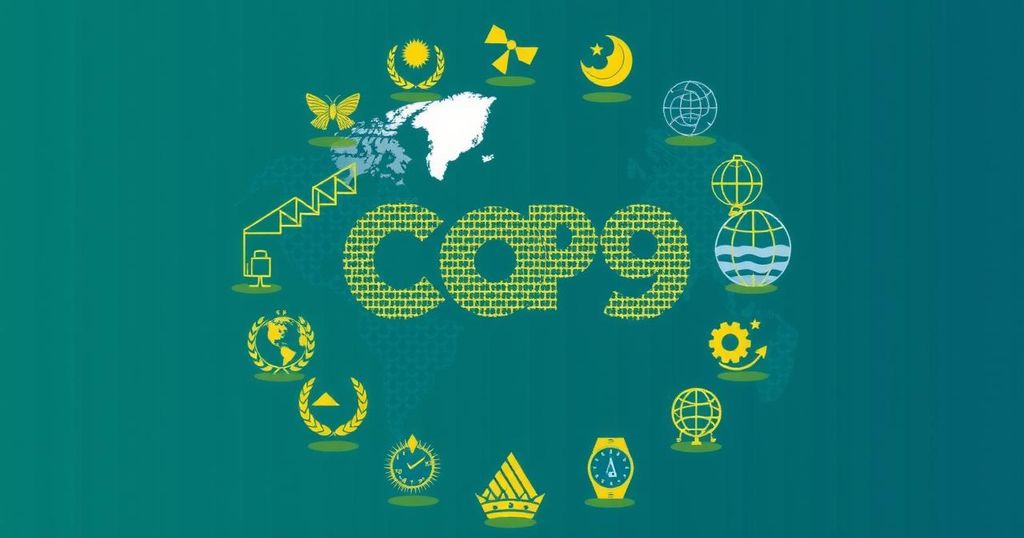COP29 Climate Summit Results: Progress in Finance Pledged Amid Discontent

COP29 in Baku concluded after extended negotiations, resulting in an agreement for developed countries to raise a minimum of $300 billion aimed at supporting developing nations in addressing climate change impacts. While the agreement was praised by developed nations, criticisms emerged from developing countries who felt it fell short of their expectations. Key figures highlighted the tension between commitments vs. actual support amidst ongoing discussions about fossil fuel interests.
The COP29 climate summit, which concluded after an extended period beyond its scheduled end, resulted in an agreement on international climate finance with significant implications for both developed and developing countries. Developed nations committed to raising a minimum of $300 billion by the year 2035, in an effort to channel a total of $1.3 trillion to assist developing countries in combating greenhouse gas emissions and adapting to climate change impacts. These countries have been encouraged to contribute on a voluntary basis, although the response to this agreement has varied widely.
Despite the agreement, many developing nations expressed substantial disappointment regarding the negotiations’ outcome, feeling that the commitments made fell short of their expectations for greater financial support from wealthier countries. Mohamed Adow, the director of Power Shift Africa, condemned the resolution, labeling it a “betrayal of people and the planet by rich countries who claim to take climate change seriously.” The criticisms also extended to Azerbaijan, the host nation of COP29, with allegations regarding the prioritization of fossil fuels during the summit.
In contrast, representatives from developed countries welcomed the agreement, with U.S. President Joe Biden characterizing it as an “important step” in combating climate change. The European Union’s climate commissioner, Wopke Hoekstra, articulated optimism, suggesting that COP29 would be remembered as the beginning of a new era for climate finance. This agreement supersedes the previous commitment made at COP15 in Copenhagen to raise $100 billion by 2020 and will undergo reviews in 2028 and 2030 before a discussion on scaling up financing at COP30, scheduled to be held in Brazil in 2025.
The COP29 summit serves as a critical platform for nations to negotiate climate strategies, particularly concerning climate finance aimed at supporting developing countries. With climate change posing a significant threat globally, financial commitments from developed countries are essential for enabling developing nations to implement mitigation and adaptation strategies. This year, the focus was on solidifying commitments that not only assist in reducing emissions but also enhance resilience against climate impacts, amidst ongoing skepticism and demands for greater contributions from wealthier nations.
In summary, while COP29 resulted in a consequential agreement on climate finance, contrasting responses from developed and developing countries highlight the challenges of fostering equitable solutions in the realm of global climate action. The commitment of at least $300 billion from developed nations is viewed as a positive step; however, the dissatisfaction expressed by developing countries underscores the ongoing struggle for comprehensive support in addressing climate change ramifications.
Original Source: www.belganewsagency.eu








